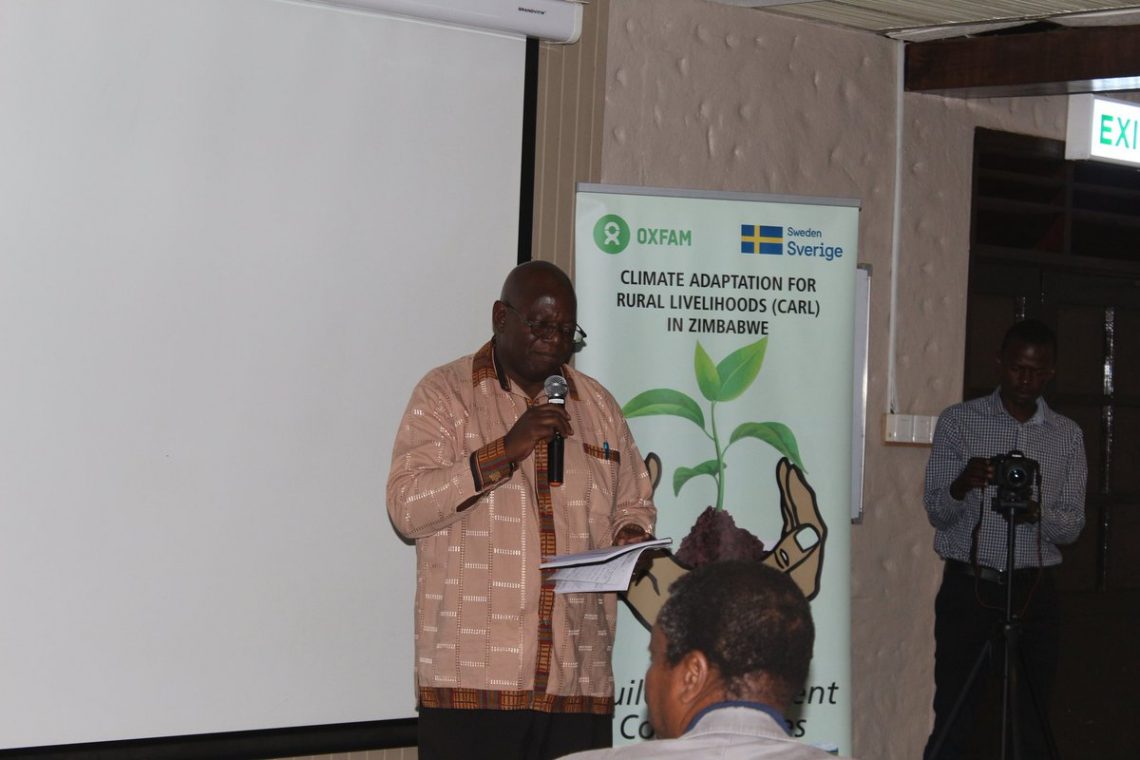By Michael Mashiri
Oxfam Zimbabwe has launched a programme called Climate Adaptation for Rural Livelihoods (CARL), which is an initiative designed to end poverty in rural areas.
The project endeavours to make sure that rural women increase their income and economic power in sustainable agricultural crop supply chains such as groundnuts, pea beans, cattle and goats.
Speaking at the launch of the project in the Harare on Thursday 25 October 2018, the CARL Project Manager Leonard Unganai said Zimbabwe as an agro-based county should always make sure that agriculture is in good shape.
“Agriculture is the mainstay of livelihoods in Zimbabwe and we have to do everything to make sure that we maintain a good agricultural landscape,” he said.
He added that people should reduce the cutting down of trees because it is a factor that reduces the opportunities of water soaking into the soil and as an organisation they had made initiatives in making sure that they have an alternative to the cutting down of trees by giving people biogas as a form of power.
“The more you deforest, the more you minimise the chances of water soaking into the ground, but in order reduce that, we gave them biogas to use in place of firewood so as to reduce the cutting down of trees,” he said.
Climate adaptation for Rural Livelihoods, is a programme that is funded by the Swedish Embassy which hopes to improve climate resilience of agricultural production and end poverty in rural areas such as Buhera, Bulilima and Gutu districts.
Gareth Horsfield, who was a representative of the Swedish Embassy and is also the National Programme Officer for Environment, Climate Change, Resilience and Renewable Energy said the Embassy of Sweden was supporting the programme because it is also interested in uplifting the lives of downtrodden members of the society.
He said the Swedish had implemented a feminist foreign policy which supports gender equality, as a result, Oxfam was one of the organisations that does not segregate women.
“Historically, the Embassy of Sweden’s cooperation work has concentrated on health rights and governance, with gender equality being an essential cross cutting issue in all the work that it carries out.
“Sweden has a feminist foreign policy, which means that in all the work that we support, we place gender equality squarely at the centre, as such Oxfam is a leading organisation when it comes to integrating gender into programming in Zimbabwe,” he said.






